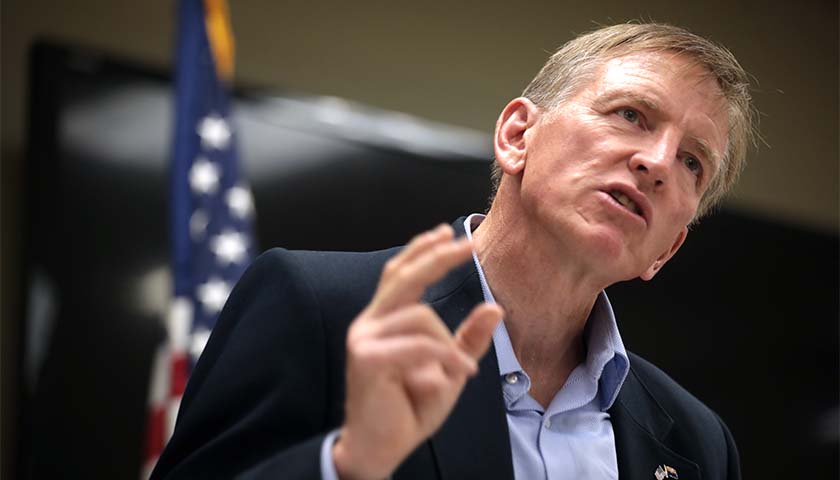Arizona Representative Paul Gosar (R-AZ-04) last week blasted the Inflation Reduction Act of 2022, a revival of President Joe Biden’s (D) “Build Back Better” (BBB) economic bill, saying the contents of the bill will not accomplish what the title promotes.
“Families can’t afford gas and groceries, yet Democrats want to raise taxes and spend billions more of your hard-earned money. Instead of addressing the root cause of the recession: out-of-control government spending, Joe Biden and Democrats are now doubling down on their far-left socialist policies that put us into this inflationary death spiral,” Gosar said.
The act includes extending the Premium Tax Credit through 2025, and carries interest tax reform for those with an income above $400,000, climate and energy provisions, a book minimum tax (BMT) which imposes a 15 percent minimum tax on companies making over one billion dollars, drug price reforms, and IRS funding, among other items.
The United States Senate Committee of Finance (COF) shared that while Democrats tout the bill as a way for the wealthiest Americans and corporations to pay their fair share, it will likely raise taxes on low- and middle-income Americans and manufacturers.
“The more this bill is analyzed by impartial experts, the more we can see Democrats are trying to sell the American people a bill of goods,” said COF Ranking Member Mike Crapo. “Nonpartisan analysts are confirming this bill raises taxes on the middle class, raises taxes on manufacturers and produces no meaningful deficit reduction when gimmicks are removed and the full cost is accounted for.”
An $80 billion increase in IRS funding is meant to give it the resources needed to go after wealthy tax cheats and generate more than $124 billion in additional revenue toward deficit reduction. Yet, the Joint Committee on Taxation (JCT) stated that middle-income earners would feel the brunt of this increase. Moreover, not all the money would be used for enforcement purposes. If the IRS did start raising income money from “under-reported income,” those funds would likely come from those who make under $50,000, not the wealthy elite, like the bill advertises.
Furthermore, the BMT is a $313 billion tax increase, and half of the increase would fall on manufacturers, according to the JCT. The BMT also does not close tax loopholes, despite what proponents say. Increasing taxes on domestic manufacturers could further hinder supply, which is part of the reason why America is facing record inflation.
Moreover, despite the tax reforms not being aimed at those making under $400,000, the JCT found that segment is the exact group that tax hikes would hit. The JCT estimated that under the act, taxes will increase by $16.7 billion on American taxpayers making under $200,000. The average tax rate for nearly every income bracket would increase in the next 10 years.
The COF argued that even if a corporate tax increase occurs, that usually gets passed onto workers and consumers in the form of lower wages and higher prices.
The news of the Inflation Reduction Act came at a time of increased concerns about a recession. CNBC reported that Gross Domestic Product (GDP) fell 0.9 percent in the second quarter, which followed a 1.6 percent decrease in the first. A second straight negative GDP is the accepted definition of a recession.
– – –
Neil Jones is a reporter for The Arizona Sun Times and The Star News Network. Follow Neil on Twitter. Email tips to [email protected].
Photo “Paul Gosar” by Gage Skidmore. CC BY-SA 2.0.








